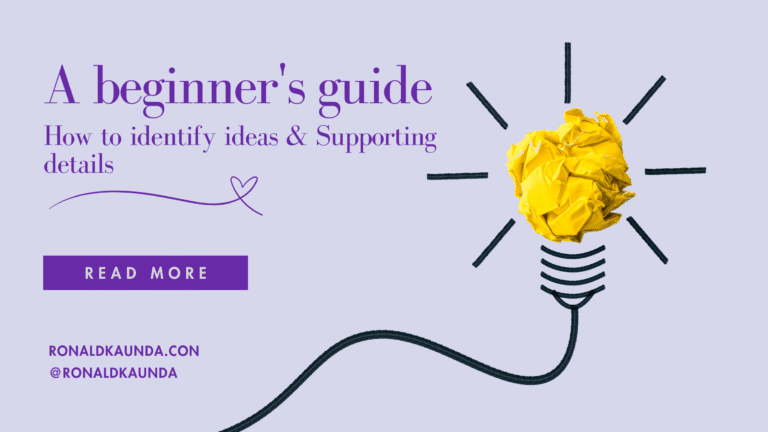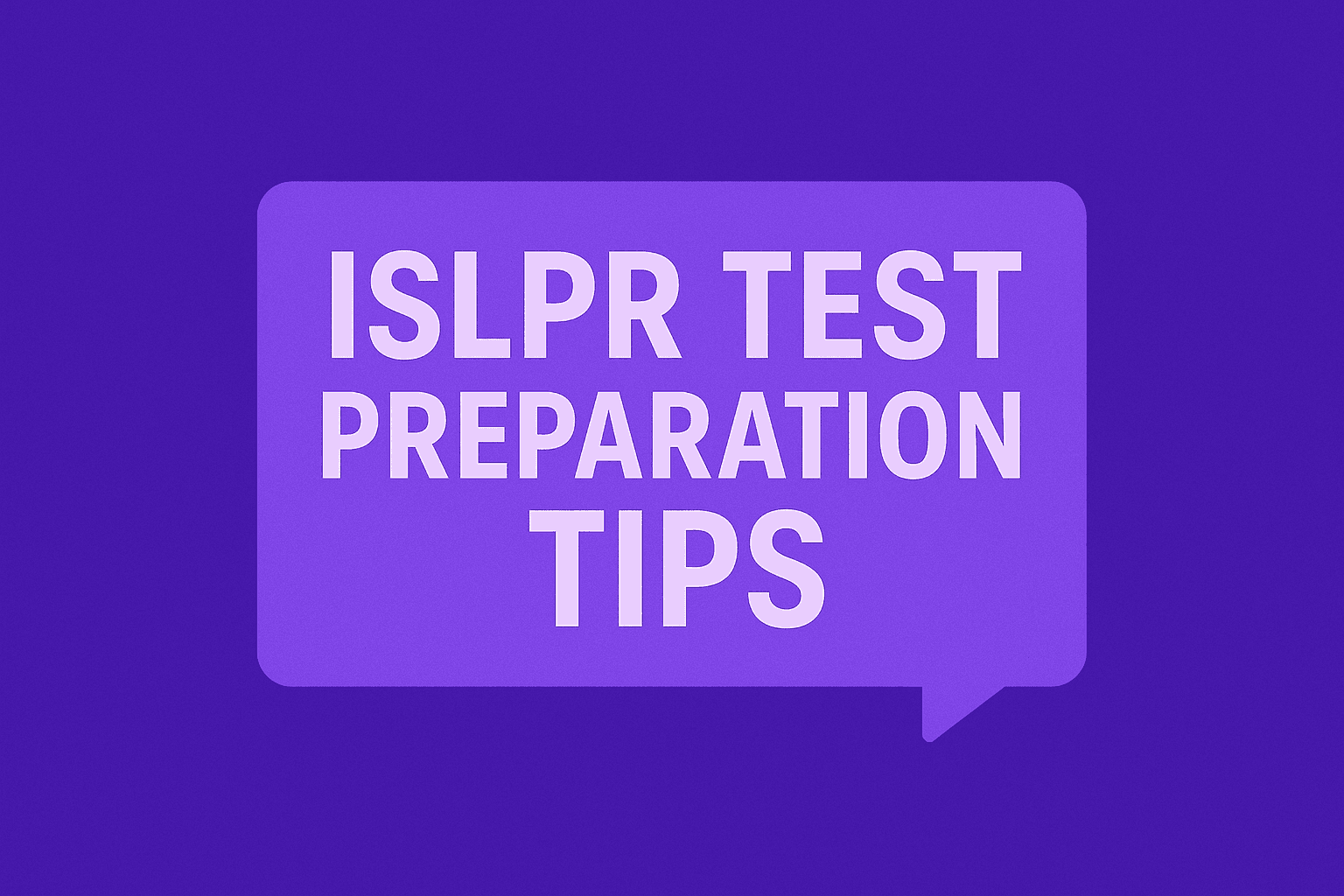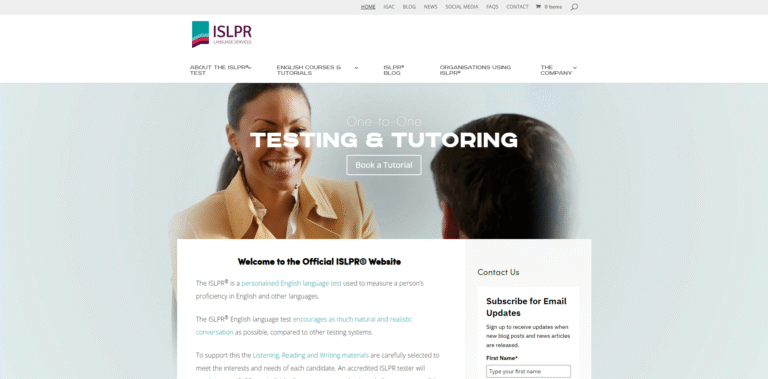Mastering the right tone in your ISLPR Writing Test can make the difference between an average score and a top band. As a candidate, you will be assessed on your ability to adapt your writing style to suit the task.
Some prompts require a formal register, such as academic essays or professional reports, while others like personal letters or journal entries may allow a more conversational tone. In both cases, knowing which structures, vocabulary and conventions to use or avoid will help you produce clear, accurate and appropriately styled responses.
This post explores the key differences between formal and informal English, provides real examples of each, and highlights common pitfalls to steer clear of.
Why Register Matters in the ISLPR Writing Test
Register refers to the level of formality in your language. Examiners look for consistency and appropriateness:
- Formal register signals professionalism, objectivity and academic rigour.
- Informal register conveys friendliness, personality and conversational ease.
Using the wrong register can confuse your reader, weaken your argument or even incur penalties for style. Always check the question: is it a report to an employer, a recommendation to a school principal or a personal reflection to a friend? Match your tone accordingly.
1. Vocabulary Choices: Precise vs. Colloquial
Formal English employs precise, often Latinate vocabulary. Avoid slang, idioms and casual expressions.
Informal English uses everyday words, contractions and colloquialisms.
| Formal | Informal |
| commence | start |
| require | need |
| sufficient | enough |
| demonstrate | show |
| approximately | about |
| subsequent | next |
Real Example
- Formal: “The study commenced in July and required approximately 200 participants to demonstrate sufficient statistical significance.”
- Informal: “The study started in July and needed about 200 people to show enough evidence.”
What to Avoid in Formal Writing
- Slang: “kids,” “guy,” “stuff”
- Contractions: “can’t,” “won’t,” “it’s”
- Emotive language: “awesome,” “terrible,” “amazing”
2. Tone and Objectivity: Impersonal vs. Personal
Formal writing favours an impersonal tone, minimising the use of first- and second-person pronouns. Informal writing embraces personal perspective and direct address.
- Formal: Use third person or nominalisation
- “One may observe that…”
- “The data indicate…”
- Informal: Use first and second person
- “I noticed that…”
- “You can see that…”
Real Example
- Formal: “Researchers may conclude that increased screen time adversely affects attention spans.”
- Informal: “I think we can see that spending more time on screens hurts our ability to concentrate.”
What to Avoid in Formal Writing
- “I believe,” “I think” (unless the task explicitly asks for personal reflection)
- “You” to address the reader directly
- Emotional appeals rather than evidence-based claims
3. Sentence Structure: Complex vs. Simple
Formal texts often feature complex, multi-clause sentences and passive constructions to convey nuance and objectivity. Informal texts favour shorter, active-voice sentences for clarity and pace.
| Formal (Passive / Complex) | Informal (Active / Simple) |
| “It was discovered that the policy had unintended consequences.” | “We discovered that the policy had unintended outcomes.” |
| “The implementation of technology in classrooms, despite its initial costs, has significantly improved student engagement.” | “Technology in classrooms costs a lot at first but has really boosted student engagement.” |
Real Example
- Formal: “Although the initial investment posed financial challenges, the implementation of renewable energy systems has yielded long-term cost savings.”
- Informal: “It cost a lot at the start, but switching to renewable energy has saved us money over time.”
What to Avoid in Formal Writing
- Overuse of passive voice when it weakens clarity
- Sentence fragments or run-ons that confuse the reader
- Sloppy punctuation such as comma splices
4. Contractions and Colloquialisms: When to Steer Clear
Contractions (can’t, don’t, we’re) and colloquial expressions (gonna, reckon, heaps) are hallmarks of informal style. In the ISLPR Writing Test, only use them if the prompt explicitly invites personal or conversational tone, such as a friendly letter.
Real Example
- Informal: “I can’t wait to see how the new program’s gonna help the students.”
- Formal (rewritten): “I look forward to observing how the new programme will assist students.”
What to Avoid in Formal Writing
- Contractions such as “they’re,” “shouldn’t”
- Informal intensifiers like “really,” “super,” “totally”
- Slang terms: “kids,” “bucks,” “awesome”
5. Punctuation and Layout: Clean vs. Casual
Formal writing follows standard punctuation rules and avoids emojis, exclamation marks and excessive ellipses. Paragraphs are well-structured and transitions are signposted with linking words.
| Formal | Informal |
| “Furthermore, the results corroborate the hypothesis.” | “Plus, the results totally back up what we thought.” |
| “In summary, the programme achieved its primary objectives.” | “All in all, it did what it was supposed to.” |
Real Example
- Formal: “The proposal requires further revisions; however, its core objectives remain valid.”
- Informal: “The proposal still needs tweaking but it’s basically on track!”
What to Avoid in Formal Writing
- Emojis or emoticons
- Multiple exclamation marks
- Informal bulleting or run-on lists without proper structure
6. Task-Driven Tone: Adapting to Different Prompts
The ISLPR Writing Test may ask you to write:
- Formal reports or recommendations for a school principal or employer
- Article summaries, literature reviews or argumentative essays
- Informal emails or journal entries for reflection or personal response
Always tailor your register:
- For a recommendation report use headings, formal register and objective tone.
- For a reflective journal entry write in first person and use conversational style.
- For an argumentative essay maintain impersonal voice, strong evidence and formal connectors such as moreover, nevertheless and consequently.
Common Pitfalls and How to Avoid Them
- Inconsistent Register
Mixing formal and informal elements undermines coherence. Choose one register and stick to it throughout your response. - Inappropriate Tone for the Task
Writing an informal email when the prompt demands a formal proposal will cost you marks. Always analyse the question carefully. - Over-Formality
Using excessively long words or overly complex sentences can obscure meaning. Aim for clarity even within a formal register. - Under-Formality
Using slang or contractions in a formal task creates an unprofessional impression. If in doubt, err on the side of formality. - Lack of Variety
Over-reliance on the passive voice or certain linking words can make your writing monotonous. Vary your sentence structures and connectors.
Conclusion
Understanding the distinction between formal and informal English is crucial for succeeding in the ISLPR Writing Test. By choosing appropriate vocabulary, maintaining a consistent tone, structuring sentences effectively and avoiding casual slang, you demonstrate the linguistic flexibility examiners look for.
Practise rewriting informal samples into formal style and vice versa to build awareness of register. With real examples and attention to common pitfalls you will feel confident in adapting your writing to any ISLPR prompt ensuring your responses are clear, accurate and suitably polished. Good luck with your preparation!









 How To Write A Personal Statement For A Scholarship
How To Write A Personal Statement For A Scholarship